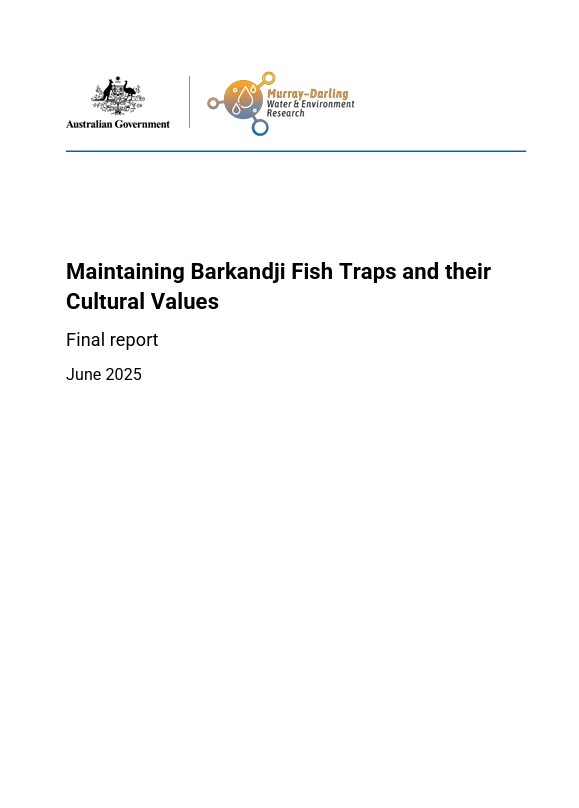Murray–Darling Basin Authority, Media Release, 18 November 2025
The Murray–Darling Basin Authority (MDBA) has welcomed new research that combines Indigenous knowledge and ecological science to protect and restore the Darling (Baaka) River.
The study, led by the Wilcannia Barkandji community, highlights the enduring Cultural, spiritual, and ecological significance of Barkandji stone fish traps along the Baaka near Wilcannia.
“This project shows that the Barkandji Elders still remember the old ways and need to pass this knowledge on so we can keep the Baaka healthy for future generations,” said Barkandji Elder Badger Bates.
MDBA General Manager Science Acquisition, Dr Matthew Coleman said the project showcases the importance of working with First Nations communities to care for the Basin’s rivers and ecosystems.
“This research reminds us that Country holds knowledge — and that by listening to Traditional Owners, we can find new ways to heal both people and the river,” Dr Coleman said.
“The Barkandji community’s leadership in ensuring continuous Cultural connection with the Baaka and re-establishing traditional fish traps shows the power of Cultural knowledge in guiding modern environmental restoration.”
Field research along the Baaka uncovered previously unrecorded dry stone fish traps and rock walls, alongside the rediscovery of the critically endangered Darling River snail at the Old Wilcannia Weir.
These findings highlight the cultural and ecological importance of rock features as vital habitats and the role of Barkandji-led restoration in healing Country, strengthening identity, and supporting biodiversity.
“The rediscovery of the Darling River snail shows how combining traditional knowledge with scientific monitoring can lead to real breakthroughs, this is more than environmental restoration — it’s cultural renewal.”
Key recommendations from the study include:
- Integrating Cultural knowledge into water management and planning;
- Maintaining river connectivity to support native species;
- Supporting ongoing, community-led monitoring and management by the Barkandji people; and
- Recognising the ecological and cultural value of rock bars and fish traps along the Baaka.
This project was funded by the Murray–Darling Water and Environment Research Program (MD-WERP), a collaborative initiative between the MDBA, the Commonwealth Environmental Water Office, and the Department of Climate Change, Energy, the Environment and Water.
Read more in the full report: Maintaining Barkandji fish traps and their cultural values

